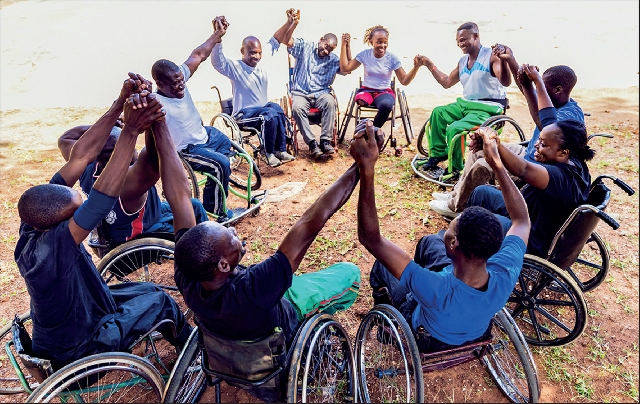Ghana @ 65 and the state of persons with disability
 Disability status in Ghana
Disability status in Ghana
Disability has been a global issue for a very long time.
Disability was first perceived as a medical issue.
Under the medical model of disability, disability was seen from the medical perspective and so persons with disability were seen as having medical conditions and so they needed medical treatment to be able to live as regular citizens of society.
Over time, it was realised that the medical model was not helping, because, persons with disability were rather seen as defective instead of regular people who could enjoy certain benefits if society is structured well.
As time went by, some civil rights movements started in the United States of America and the United Kingdom to fight against the medical model of disability which sidelined persons with disability and prevented them from their full participation in the society.
Hence, the social model of disability was proposed.
The social model of disability comprehends disability from the social perspective, in the sense that the inability of persons with disability to participate fully in society is as a result of the inability of society to make provisions to accommodate them.
Persons with disability face social issues like inaccessible environments, negative connotations, stigmatisation, lack of accessible transport and non-inclusive digital transformation.
Even though the social model of disability is still in use, there is a new model of disability, which considers disability as a human rights issue.
Disability as a human rights issue argues that persons with disability are entitled to certain rights in society like their non-disability counterparts and so if those rights are overlooked or curtailed by society as a result of societal barriers, we are trampling on the rights of persons with disability.
In my previous edition of Ghana at 60 and the state of persons with disability in Ghana in the Herald Newspaper, I presented certain barriers that persons with disability face in Ghana, like the ones I have mentioned above.
Five years down the line, not much have been achieved in terms of accessible physical structures like buildings, lack of sign language interpreters in institutions, less inclusive education and promoting disability sports.
Ghana as a country still subscribes to the medical model of disability, with less effort in working towards the social model of disability. Despite the awareness, little work is done towards the human rights model of disability.
Disability now is a human rights issue so much effort must be put into it. Let’s recognise the needs of persons with disability and work towards removing the barriers to their full participation in the society.
If at 65, persons with a disability still face several challenges in their lives as a result of people, systems and structures in the society, then a lot more work needs to be done.
This is not to neglect the fact that certain organisations like the H4P Organisation have been doing tremendous work to promote the well-being and the rights of persons with disability.
Let us all come on board to promote an all-inclusive society because a society that does not promote diversity is a society that is not worth celebrating.
Source: Mavis Yaa Konadu Agyeman
Trending Features

Lithium: A billion-dollar mineral, a withdrawn bill, and a country at a crossroads
15:14
When silence speaks louder than words
12:12
Project finance: A viable path to build Ghana’s infrastructure without overstretching or overburdening public Debt Ghana is facing mounting fiscal and infrastructure financing pressures
10:24
As awareness campaigns fade, new HIV infections rise
09:48
Rejoinder: Reject misleading calls to endorse vapes as tobacco harm reduction in Ghana's Public Health Act
23:34




